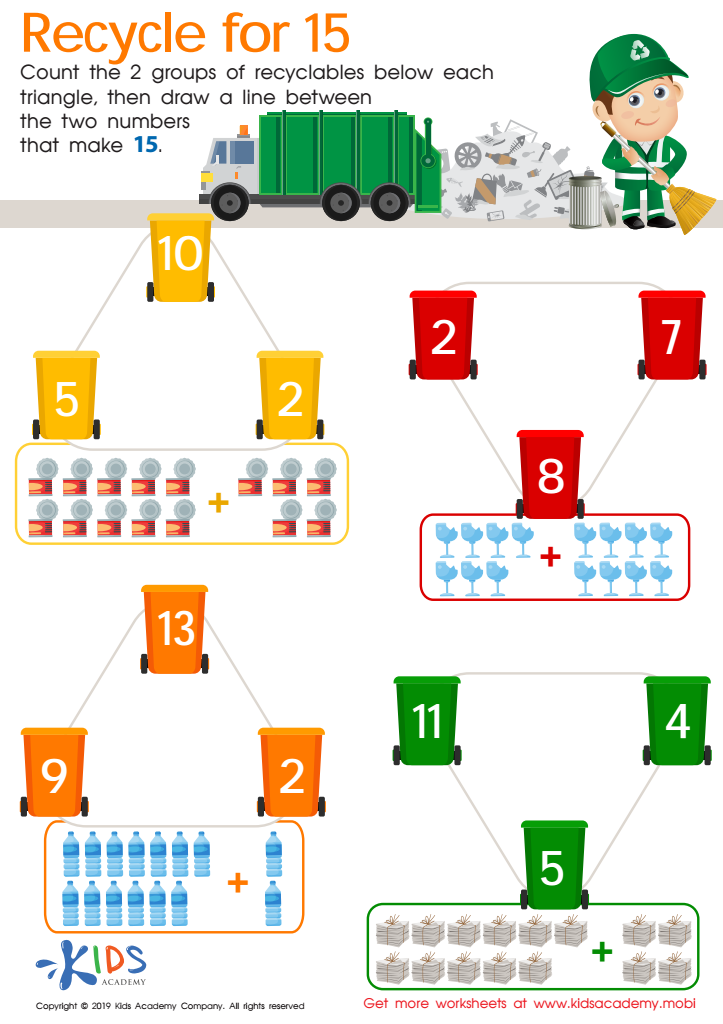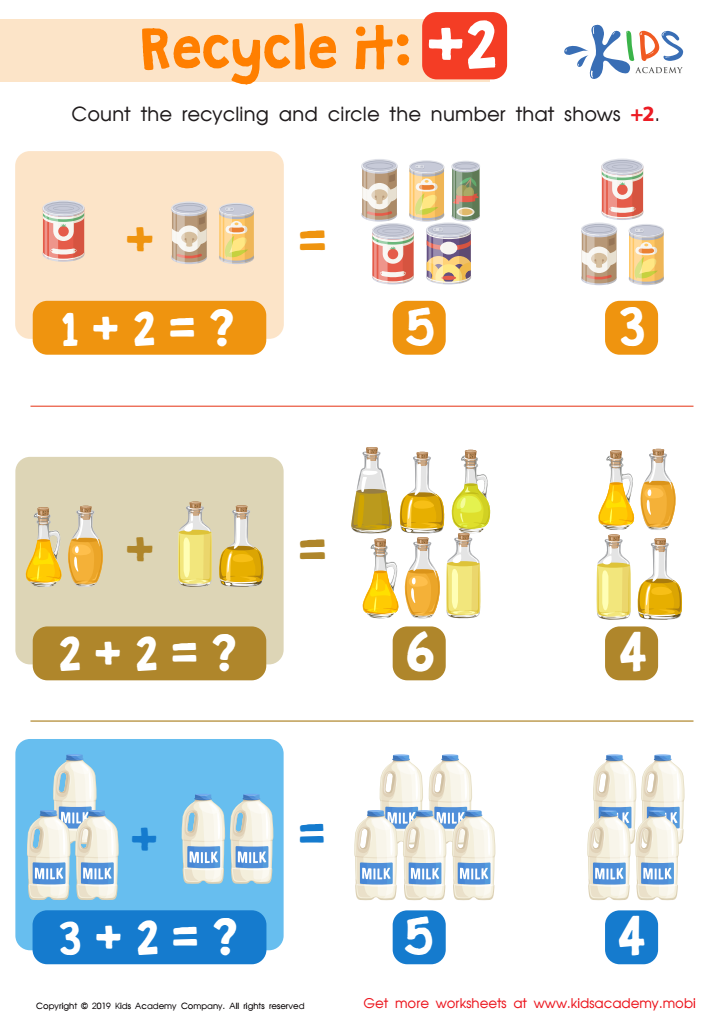Sorting skills Addition Worksheets for Ages 5-7
4 filtered results
-
From - To
Enhance your child's learning experience with our Sorting Skills Addition Worksheets, specifically designed for ages 5-7. These engaging activities combine essential sorting skills with fundamental addition concepts, making math fun and accessible for young learners. Each worksheet encourages children to categorize numbers and objects while practicing addition, promoting critical thinking and problem-solving abilities. Perfect for home or classroom use, our resources cater to various learning styles, igniting a passion for math in early education. Equip your little ones with essential skills through interactive exercises that build confidence and set a strong foundation for future math success. Explore our worksheets today!


Recycle for 15 Worksheet


Recycle It: +2 Worksheet
Sorting skills are fundamental for children aged 5-7 as they lay the groundwork for more complex mathematical concepts, including addition. Sorting helps young learners categorize objects based on shared attributes, such as size, color, or shape. This practice enhances critical thinking and cognitive development, as children learn to identify patterns and relationships, which are crucial in mathematics.
In the context of addition, sorting skills can help children understand the concept of groups and quantities. For instance, when counting objects to add them, children can sort items first, making it easier to identify how many there are in total. Sorting fosters organizational habits that can streamline problem-solving processes, making addition feel less daunting and more manageable.
Additionally, developing these skills early encourages confidence. When children are able to sort effectively, they’re more likely to engage positively with math activities, making mathematics a more enjoyable subject rather than a source of anxiety. By supporting the development of sorting skills in conjunction with addition, parents and teachers can help children build a strong mathematical foundation, preparing them for future academic success. Overall, fostering sorting skills is essential for nurturing proficient, eager learners who are equipped to tackle more advanced mathematical challenges.
 Assign to My Students
Assign to My Students


















